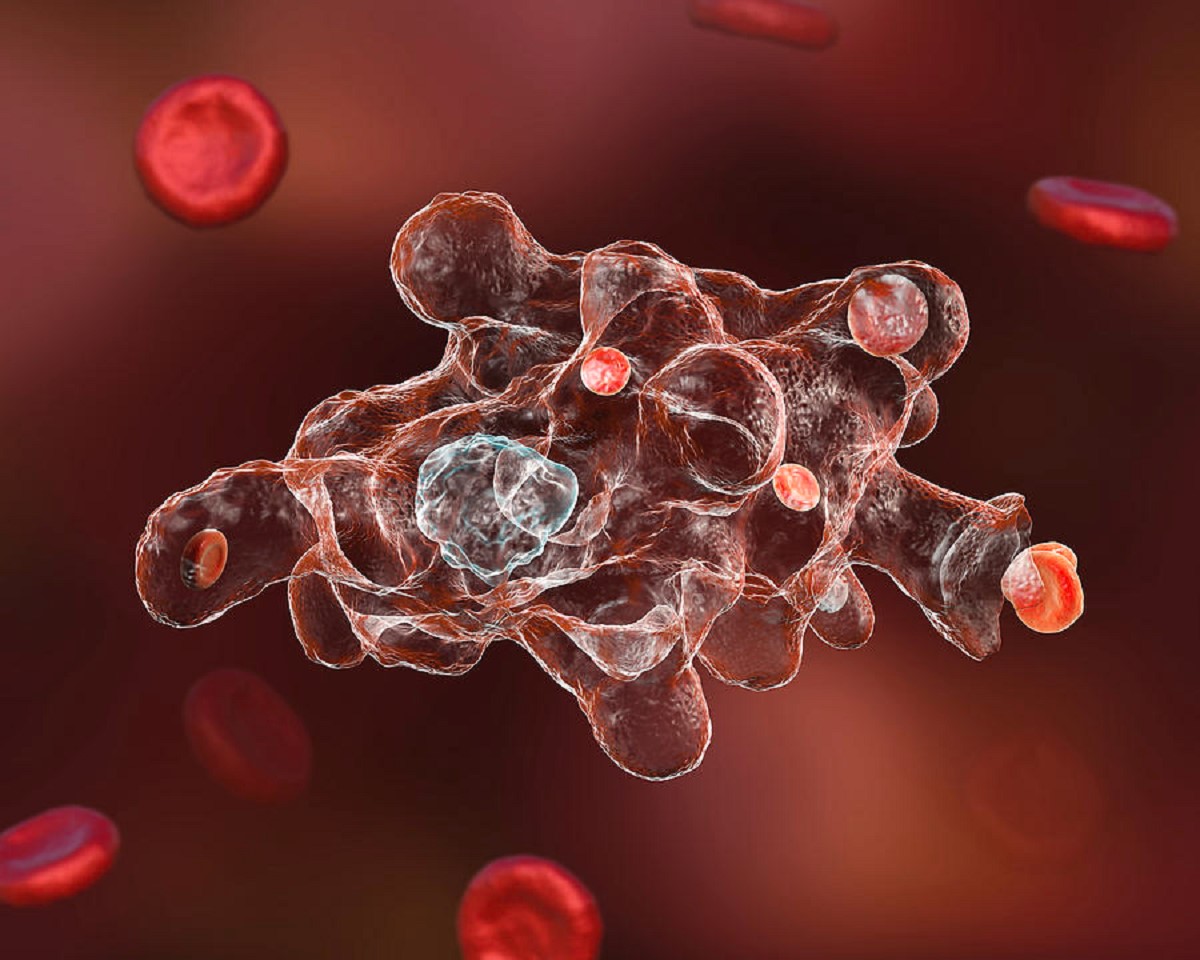KEY TAKEAWAYS
- The phase 3 SYMPATICO study assessed ibrutinib in combination with venetoclax in subjects with mantle cell lymphoma.
- Primary endpoint: PFS. Secondary endpoints included CR, TTNT, OS, interim analysis, and ORR.
- The combination of Ibrutinib and Venetoclax showed significant PFS enhancement compared to Ibrutinib plus placebo in relapsed/refractory MCL patients. A favorable safety profile was observed.
Arecent large-scale phase 3 SYMPATICO study compared the effectiveness of Ibr+Ven versus Ibr+placebo in patients with relapsed/refractory MCL, and the investigators presented the primary analysis results.
Patients aged 18 or older with relapsed or refractory mantle cell lymphoma (R/R MCL) and a history of 1–5 prior therapies were randomly assigned to receive either oral Ibrutinib or a placebo.
Ibrutinib was administered at 560 mg once daily alongside Venetoclax, which followed a standard ramp-up to a target dose of 400 mg once daily for a period of 2 years. After this, patients continued with single-agent Ibrutinib until disease progression or unacceptable side effects.
The primary goal was to assess progression-free survival (PFS) based on Lugano criteria as evaluated by the investigator, considering patients without disease progression or death up to their last non-progressive assessment.
The study also included secondary endpoints such as complete response rate, time to next treatment, interim analysis of overall survival, and overall response rate assessed by the investigator.
There were 267 participants randomly split into Ibr+Ven (n=134) or Ibr+Pbo (n=133) groups, with the median age being 68 years. Among the participants, 96% exhibited an ECOG PS of 0–1, 17% had undergone three or more prior lines of therapy, and 22% were at an increased risk for TLS.
At the study’s outset, those in the Ibr+Ven group versus the Ibr+Pbo group showed similar baseline characteristics in terms of age, risk scores, disease size, bone marrow involvement, splenomegaly, and TP53 mutation frequency.
After a median study duration of 51.2 months, the evaluation indicated a significantly longer median PFS (Progression-Free Survival) in the Ibr+Ven group compared to the Ibr+Pbo group (31.9 months vs. 22.1 months). The hazard ratio (HR) stood at 0.65 (95% CI, 0.47–0.88), indicating a notable difference in favor of Ibr+Ven (stratified log-rank P=0.0052). PFS rates at 24 months were 57% and 45% with Ibr+Ven and Ibr+Pbo, respectively. Notably, the benefit in PFS with Ibr+Ven remained consistent across specified subgroups, including those with blastoid variant or TP53-mutated MCL.
The analysis conducted on the Progression-Free Survival (PFS) consistently supported the primary findings. Results indicated that Ibr+Ven notably increased complete response (CR) rates to 54% from 32% and extended the time to next treatment (TTNT) significantly (median not reached [NR] vs. 35.4 months). At a median follow-up of 51.2 months, the median Overall Survival (OS) was 44.9 months for Ibr+Ven and 38.6 months for Ibr+Pbo (HR 0.85 [95% CI, 0.62–1.19]).
In terms of treatment duration, patients in the Ibr+Ven group received treatment for a median of 22.2 months compared to 17.7 months for those in the Ibr+Pbo group. At the analysis point, 30% in the Ibr+Ven group and 20% in the Ibr+Pbo group continued with single-agent Ibrutinib.
Regarding adverse events (AEs), grade ≥3 AEs were more prevalent in the Ibr+Ven group (84%) compared to the Ibr+Pbo group (76%). Common events (≥5% occurrence) included neutropenia, pneumonia, thrombocytopenia, anemia, diarrhea, leukopenia, Mantle Cell Lymphoma (MCL), atrial fibrillation, COVID-19, and hypertension.
Serious AEs were reported in 60% of participants in both treatment arms. Clinical Tumor Lysis Syndrome (TLS) did not occur, though laboratory TLS affected 5% in the Ibr+Ven group and 2% in the Ibr+Pbo group. Notably, COVID-19-related deaths occurred in 10 patients in each group but did not notably impact PFS or OS.
The combination of Ibr and Ven showed a clear efficiency in prolonging progression-free survival (PFS) compared to Ibr with placebo in patients with R/R MCL. This combination improved CR rates and TTNT significantly. While OS didn’t show significant improvement in this analysis, the safety profile of Ibr combined with Ven aligned with the expected side effects for each drug without any new safety concerns emerging.
These findings suggest a promising benefit-to-risk balance for the Ibrutinib-Venetoclax combination in patients with relapsed/refractory mantle cell lymphoma.
Source: https://ash.confex.com/ash/2023/webprogram/Paper191921.html
Clinical Trial: https://clinicaltrials.gov/study/NCT03112174
Wang, M., Jurczak, W., Trněný, M. (2023). “Ibrutinib Combined with Venetoclax in Patients with Relapsed/Refractory Mantle Cell Lymphoma: Primary Analysis Results from the Randomized Phase 3 Sympatico Study.” Presented at the ASH 2023 – 65th American Society of Hematology Annual Meeting and Exposition, December 9-12, 2023, San Diego, CA, US.



